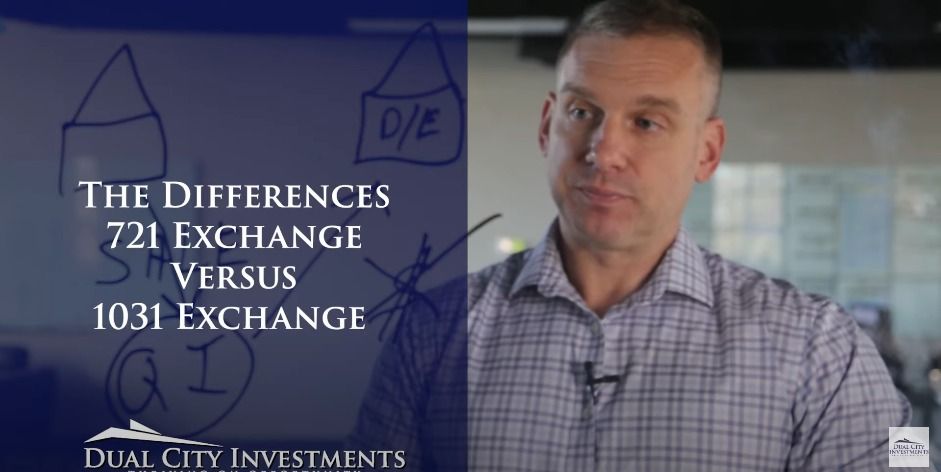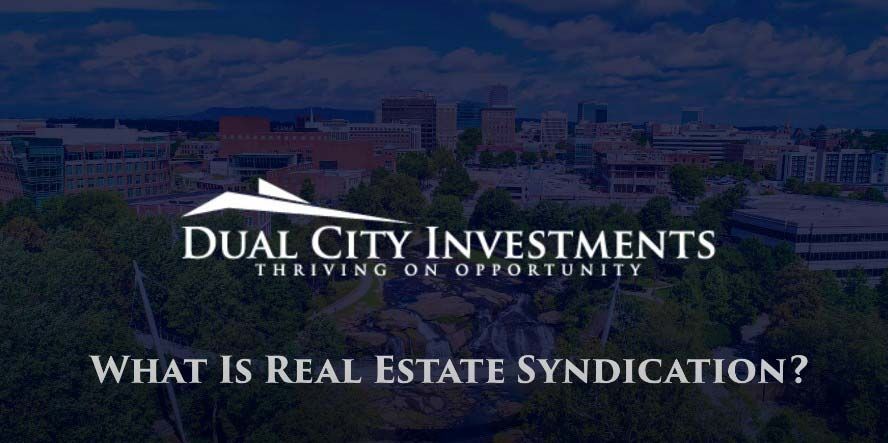Investor Resources
Dual City Investments
Real Estate Syndications Explained
There's a lot of information out there on the market. There are a lot of syndication funds out there, sponsors coming out of the woodwork from these investment guru conferences they go to, they get all pumped up, and now they want to own a hundred million dollars of real estate assets. As an investor, it is important to identify a good sponsor or management team as well as understanding what the opportunity is and if it's a fit for your money.
What is a real estate syndication?
Syndications are broken up into limited partners (the investors who bring capital) and the general partners (sponsors or managers who sign on the debt, manage operations, make all major decisions, and may also bring capital). There is often a time period identified in the subscription docs that estimates a time of exit, that timeframe can range from 1, 5 to 10 plus years. During that time investor capital is locked up and cannot be accessed for withdrawal ( a private sale of your interest may be allowed and specified in the subscription docs).
When you are investing into a syndication you are investing into a specific asset as well as putting your trust and confidence into the general partner who is putting the deal together. You're investing in the GP (sponsor) to be able to lead the project or asset and make as much of a return to investors as possible.
Investment Real Estate Syndication Structure
There are possibly an unlimited number of sysdication structures in existence, for ease of explanation we will use some common examples of structures. Most typically they are set up with a pref-plus split (“pref” = preferred return: is a promise to investors that they will receive a set % return of their invested capital after expenses, debt service, reserves but before any profit splits with the sponsor team, “plus” = in addition to the pref there is an equity share return back to investors after the prefs are met).
So as an investor, you're getting the first 6%, 7%, or 8% preferred return, and after that, you get a profit share split, something like 80% to investors and 20% to the sponsor group. There may be a waterfall structure involved which may change that structure to 80/20 split until a 12% return is met then it moves to a 50% profit split thereafter, or until another hurdle is met.
As an investor you want to look at a split that incentivizes the sponsor group to push the performance of that asset as great as possible. A sponsor does deserve to be rewarded for implementing the operational strategy and doing a good job. You want a win-win structure, you are a team and want both to crush it.
What is a Investment Real Estate Fund?
A fund is more of a portfolio of assets where profits are pooled and can be used in other areas of the fund where the fund managers deem necessary. Just as an index fund is a culmination of companies a real estate fund is a culmination of real estate assets. The fund managers are more overseeing the asset management of the whole portfolio, not just one asset. Risk is spread out (diversified) and so are the returns.
There can be many fee structures but most commonly it is set up with a higher profit split to investors, than a single syndication, but may include a AUM (assets under management fee) of a percent or two, and there may or may not be a preferred return and waterfall set up.
Caution to Investors
Understand whom you are partnering with. Marketing materials and pitch decks are sales tools, they very often highlight the positives of a deal but not the down side risk. A PPM (private placement memorandum) does explain all the risks of investing and the potential of losing your entire investment. However, they are very tedious to read and not nearly as visually impressive as the sales material. An investor who's not full time in the investment real estate business can be wooed by these great opportunities and potential great returns.
An easy rule to follow is that the higher proposed returns go hand in hand with a high risk of loss.
Finding the right GP/ Sponsor
We are in an evolving market right now. A good idea or playbook a year ago might not be the right idea today. There are good sponsors out there, and there are good opportunities out there. When deciding on a GP/ sponsor group, find one that hasn’t just rode the market upwards that they claim as their track record, find one that you can trust and has the flexibility and foresight to perform in your best interest.
Dive a little deeper, understand what is being advertised and offered, know the opportunity, as well as the sponsor, and make sure it aligns with your goals for that investment.
VISIT
204 Westfield St.
Suite 201
Greenville, SC 29601 -USA




